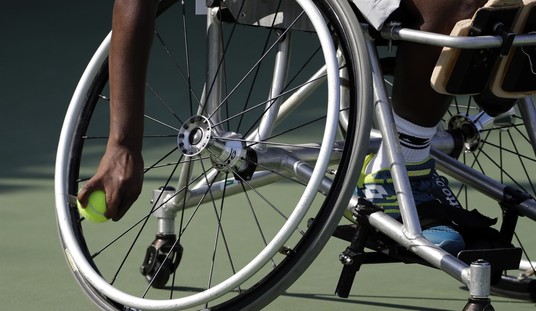This week, two major anniversaries will take place. On June 6, Americans will observe the 70th anniversary of the landing of U.S. and Allied forces on the beaches of Normandy, the largest land invasion in military history. Three hundred thousand soldiers and 54,000 warships took part in the landing. As most of us know from Tom Hanks’ movie Saving Private Ryan, their effort was carried out at a momentous price and was truly heroic.
It is most likely, as Time magazine notes in a poignant article, that this will be the last observation held in Normandy at Omaha beach (they occur every five years) with D-Day veterans in attendance. Those still living are in their 80s and 90s. “The reason why World War II has such a powerful influence on our imagination,” the British military historian Antony Beevor told Time, “is because the moral choices were so great and important. That’s the most important lesson for younger generations.”
Today, it seems that there are not many heroes (outside of those in the armed forces) the equivalent of those young men who now are referred to as “the greatest generation.” One has to pause and wonder: if America was under attack now as it was at Pearl Harbor, would so many rush to Army recruiting stations to voluntarily enlist to defend our nation?
We are reminded of how lucky we are to be living in the United States of America when we reflect on the meaning of the other anniversary that takes place only two days later after the conclusion of the Normandy landing. This one, remembered today-June 4th, will sadly not be remembered publicly in the country in which it took place.
I’m referring, of course, to the forthcoming 25th anniversary of the Tiananmen Square massacre in the People’s Republic of China, in which thousands of democracy protestors were forced to end their non-violent demonstration in an orgy of spilled blood. The so-called “People’s Army” shot young Chinese protestors on the orders of the Communist Party leadership.
The New York Times reports that we are now learning more about what happened on that day. It seems that one army general, chief of the powerful and large 38th Group Army, bravely told the party leaders when summoned to headquarters that he believed the demonstrations could only be resolved by the political process, and not by military force. Major General Xu Qinxian told a historian: “I’d rather be beheaded than be a criminal in the eyes of history.”
History is precisely what the Chinese government fears, to this day. Since Tiananmen, hundreds of Chinese have moved into the middle class, others have joined the world’s super-rich, and yet the bulk of farmers still live in rural poverty or flee to the cities to try to find work. What the Chinese do not have is any semblance of political freedom. Dissenters are arrested and thrown into jail, the internet is heavily controlled, and accurate memory of past repression — especially that undertaken at the party’s command on June 4 twenty-five years ago at Tiananmen Square — is prohibited.
The Times, which has filed first-rate reports on the subject of Chinese repression, informed its readers a few days ago that on “the 25th anniversary of the bloodshed that convulsed the nation and nearly sundered the Communist Party, censors and security forces have waged an aggressive ‘stability maintenance’ campaign that has sent a chill through the ranks of Chinese legal advocates, liberal intellectuals and foreign journalists.” At least a dozen scholars and activists whom the government fears have been arrested, and even one person who posted a selfie on the internet of himself standing on the square and flashing a V sign has also been detained.
The Chinese no longer live in the type of regime that held power in Mao’s days, but one thing the government has not abandoned has been the repressive power of the state, which clamps down on anyone its leaders fear might raise the specter of democracy. At Tiananmen, the student protestors had created a statue modeled after our own Statue of Liberty that they named “The Goddess of Democracy.” Today, China’s president, Xi Jinping, the Times story continues, “15 months into the job, is determined to stamp out dissent amid an ideological assault against liberal ideas that many view as part of a wide-ranging drive to consolidate power.”
When I was in China speaking throughout the country on a State Department program in 2000, academics at a liberal think tank told me that they thought it would take many decades for China to become a democracy like the United States, but that eventually it would occur. Today’s rulers want that day to come as far into the future as possible, and if they can, prevent it from ever happening.
The authorities fear the citizens learning the truth. But it is impossible to erase the memory of so many who were there. It is estimated that over one million people were on the streets the day the army fired into the unarmed civilians, and too many Chinese know what happened. Eventually, the new generation born after these events took place will learn about that sad day.
We who live in a still-free country, where we can speak our mind and criticize our leaders (and even call for the impeachment of our president when we feel he has violated the Constitutional requirements of his post), should take pause this Normandy landing observance day and remember how our nation stands as a beacon of freedom to those who live under repression.








Join the conversation as a VIP Member